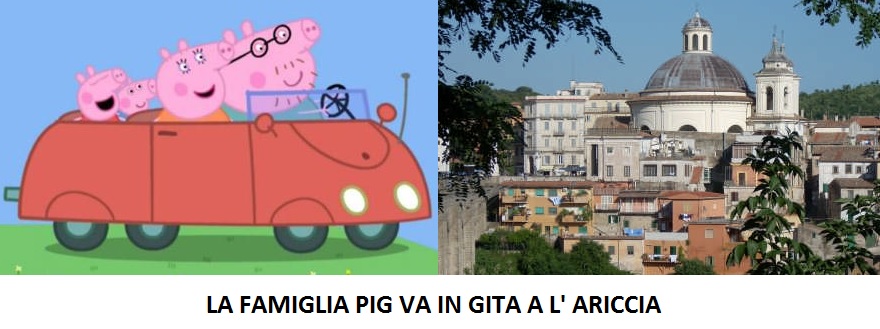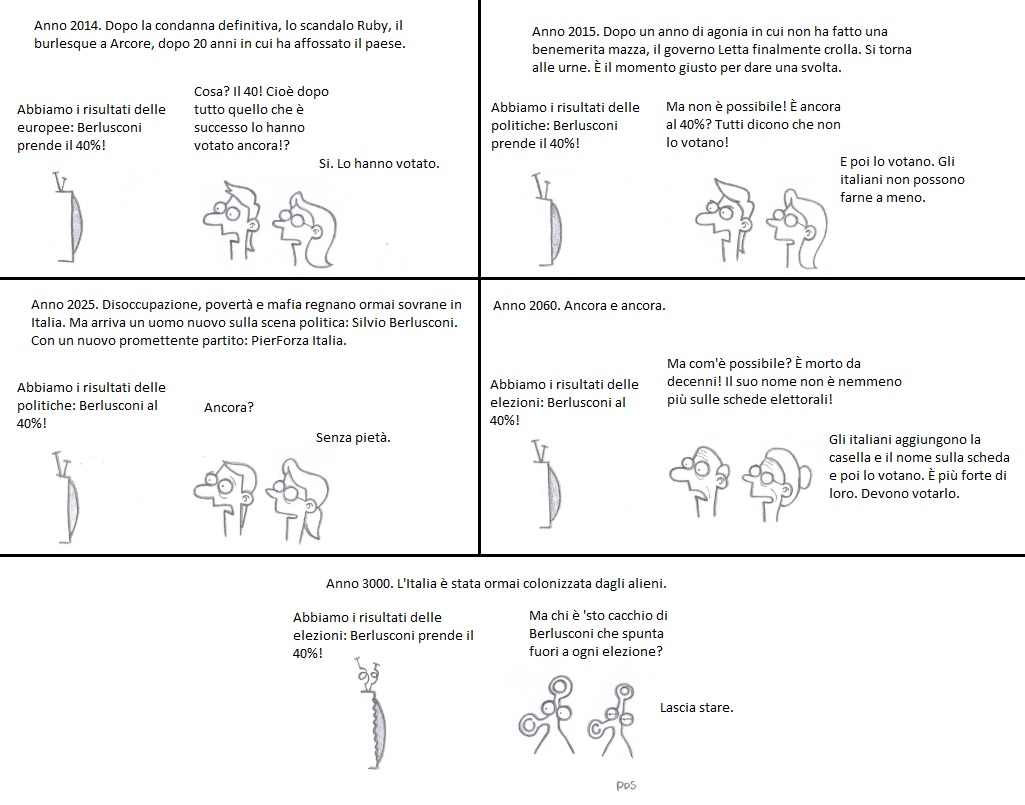Author Archives: PaoloDS
Stufo di masturbarti?
L’ho sempre pensato: quella dei banner porno è un’arte.
Traduzioni fatte alla meno peggio coi traduttori automatici, inviti di uno squallore assoluto, finte gnocche chiamate “Tiffany” residenti nella vicina “Roccasecca”, single e con due tette da urlo, e ci sono anche quelli che ti rassicurano sulle questioni pratiche, come quest’ultimo che mi è capitato: puoi farti una tromba-amica, e senza nemmeno la carta di credito! Corro!
Paramount quotes about health and nutrition
I love quotes. Through history smart people have sent us amazing messages of wisdom and truth. Simple phrases from them, short and easy to remember, are often very effective to vehicle these messages.
Meaningful quotes are from people who lived hundreds, thousands of years ago. Others are from contemporary people who live in other countries, other cultures. It is fascinating to feel a sense of connection with them: I mean, seeing things like someone who lived in such different conditions. But of course, some of my favorite quotes are from people who had experiences similar to mine too.
I have a sort of vision board above my desk. There I attach memos with the things I want/have to do. And there is always space for some inspirational quote. One I see now is “A man can do all things if he will” from Leon Battista Alberti. Very interesting concept.
More in the specific, I’ve read and reflected over many quotes about health and nutrition. And since some of them express so well the criteria I use to write here at Nutrition Freak, I decided to compile this mini-list of my favorites, packaged in a top five.
1. HAVING GOOD HEALTH IS VERY DIFFERENT FROM ONLY BEING NOT SICK (Seneca The Younger, 4 bc – 65 ad)
This is a masterpiece. The importance of this quote lies on where-is-the-focus.
Generally speaking, unconscious people tend to keep their focus on things that have little impact on their lives. In case of nutrition, a good example are people who focus on counting the calories (little impact) versus people who focus on eating nutrient-dense foods (big impact).
A lot of people tease nutrition freaks, saying that they prefer to enjoy the food they like instead of living few years more. They are missing the point. There is an abyss between only being not sick, which still means living a whole life struggling with low energy, inactive mind, bad mood, migraine, constipation (and so on)… and being really healthy,
that means having high energy, alert mind, full reasoning capacity, will to do things, good physical outlook.
I see ‘only not sick’ people daily: relatives, friends, colleagues. Some of them basically spend their life by digesting one unbalanced meal after the other. I have clear in my mind the image of my colleagues who come back after lunch, and sit in front of the computer with a sleepy face and a neon banner on their forehead: “brain switched off”.
Remember: “having good health” — abyss — “only being not sick”.
2. THE DOCTOR OF THE FUTURE WILL GIVE NO MEDICINE, BUT WILL INTEREST HIS PATIENTS IN THE CARE OF THE HUMAN FRAME, IN DIET AND IN THE CAUSE AND PREVENTION OF DISEASE (Thomas Edison, 1847 – 1931)
A positive view of the future, and I share it. I think the time for medicine as we know it now, with physicians curing the effects of the diseases instead of eliminating their causes, will end one day.
Of course there will always be congenital diseases that will need drugs and surgery (I have some of them), but today there is too much influence of money over the patients health. Pharmaceutical companies have strong interests in keeping the patients sick, so they can sell their drugs. And often they do that with the support of the media.
Think at the hypes the media created about the H1N1 flu and the Avian flu. Were these alarms justified? With few people affected, a world scale alert was broadcasted in both cases. How much money do you think the pharmaceutical companies made by just selling disinfectants during the H1N1 alarm? I guess billions.
In order for the population’s health to improve, physicians should stop simply curing their patients, they should focus on instructing them. About, as Edison said well, “the care of the human frame, diet and prevention of disease”.
3. TAKE CARE OF YOUR BODY. IT’S THE ONLY PLACE YOU HAVE TO LIVE. (Jim Rohn, 1930 – 2009)
This is a very important thing to remember. Changes happen, sometimes initiated by us, sometimes initiated by someone/something else. Almost nothing is certain in life.
Hours, weeks, months, years from now, and you may be living in a different continent, have lost your loved ones, or have new loved ones, you may have a different job, different friends, you may have become poor, you may be running to become president of a nation. Anything is perfectly possible, who knows?
But one thing, you take it for granted: wherever you will be, whatever you will be doing, with whomever you will be, until you will be living you will have this unique certainty: your body. The body you are now using to read these lines. The body in which you are in is an interface: from you to the outside. And one of the few certain things in your life is that whatever kind of interaction you will have with the world, it will happen through your body. This is why you should seriously take care of it.
(ah… obviously this is valid only until progress will not allow us to switch these ridiculous biological bodies with more efficient and fashionable robotic bodies)
4. I SAW FEW DIE OF HUNGER; OF EATING, A HUNDRED THOUSAND (Benjamin Franklin, 1706 – 1790)
Franklin was obviously thinking to his America when he said this, but this suits well all the western societies today.
Yes people die from hunger, in countries like Africa. But still, think at how many other people live there with surprising little amounts of food. And guess what? They are much healthier than many western eaters, who consume ten times more food.
Health requires eating good foods, in moderate amounts. Benjamin Franklin noticed that many people tend to do the opposite: eat junk foods, in huge amounts. They cause themselves all possible kinds of diseases, and eventually die.
Funny, this quote makes me think a lot about mothers, who always care about their children eating enough. They rarely question adequately about what they are giving to their children, they’re usually too busy giving them enough food so “they can grow”. It’s like if their kids are always risking starvation. And I know this well, since I have an Italian mother.
Typical piece of conversation at the phone with my mother:
- mother: how are you? do you want to come to eat by us?
- me: I am fine, I just left the office. I am going to the gym and I will eat just some fruit later at my house. What did you do today?
- mother: eh we had all day your nephew here, messing the house and crying. I made some lasagna at lunch and there is still some, why don’t you come eating it?
- me: no, I’ll just have something light this evening, I don’t feel hunger. Did you call grandpa?
- mother: Yes I called him. He is fine but he says he feels a little weak and his back is still sore. Usual stuff, you know. Why don’t you come to eat by us? Are you ok?
- me: yes yes, I am ok. Ah, see if you find that book in my room. I really can’t find it anymore, it must be at home.
- mother: I will see again, but I think you left it somewhere else because here there is nothing. When will you come here, Sunday? Are you sure you don’t want me to prepare you anything? In the fridge there is…”
- me: mum I am sure. Entering the gym now, I’ll come Sunday for lunch ok? Say ciao to dad”
- mother: ok ciao. But would you come if I’d cook…”
- me: click.
5. TO EAT IS A NECESSITY, BUT TO EAT INTELLIGENTLY IS AN ART (Francois De La Rochefoucauld, 1613 – 1680) 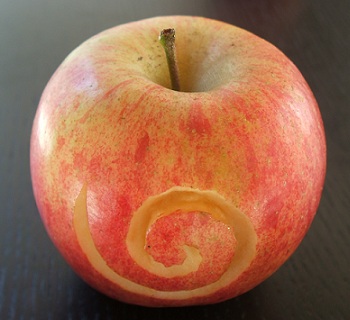
It makes me smile because I see so many things inside this phrase. There are different aspects in the relationship one can have with food. And there are many quotes about health and nutrition that describe these aspects:
- how sad are those who are too fixated with healthy food
- how serious, instead, you should be about eating healthy food
- how difficult is to give up the junk food
- how dangerous is the food industry conditioning
- how much joy, or guilt, food can provide
The truth is that finding a balance, being able to eat tasting and nutrient food without useless stress, is an art. And especially being able to manage the feelings towards food…isn’t it curious that there areso many strong feelings towards food, which is an inanimate thing?
I consider myself an artist for many things. For example I draw very well, and this is because I spent countless hours of my life drawing with a pencil. And after all the things that I’ve read and studied about nutrition, I thing that I eat in a more intelligent way than the average person. And yes, that I am an artist eater (which somehow sounds like I’d need to be brought to the mental hospital).
Considered how crucial health is, I’d suggest you to find your art dimension in eating too.
10 Foods that cause tooth decay
Tooth decay is caused by sugar.
It is a disease traceable far away back in the human history (Australopithecus), but it’s with the modern crazy habit of adding sugar everywhere that tooth decay has exploded. 90% of the population experiences caries in their lifetime. I am in it.
Sugar feeds the bacteria present in our mouth. Bacteria produce acid. Acid erodes the enamel. It’s simple. And once the enamel is eroded to a point that a hole forms in the tooth surface, there is little hope for decay not to appear. With all the foods that pass in the mouth daily, imagine all the stuff that goes in and out the hole.
A tooth is in a constant process of mineralization (thanks to saliva, fluoride toothpaste) and demineralization (“thanks” to the acids). The hole is formed when demineralization is faster than mineralization. So the key question is: what are the foods responsible for a too fast demineralization?
Here we go with the top 10 causes of tooth decay.
1. STICKY CANDIES
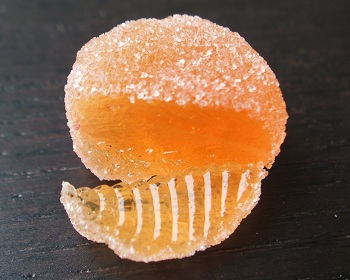 These are evil. Super dangerous because they stick to the surface of the teeth for long time. A key criterion that decides how harmful a food is for decay is time. How much time teeth are exposed to sugar, and consequently exposed to the acids.
These are evil. Super dangerous because they stick to the surface of the teeth for long time. A key criterion that decides how harmful a food is for decay is time. How much time teeth are exposed to sugar, and consequently exposed to the acids.
Now visualize the image of you trying to suck these candies away from the teeth, using the tongue for minutes. They are so sticky and it’s hard (despite sweet) to remove them. This is what I am talking about. Worst choice.
Examples: gummy bears, licorice candies, sour candies, jellies.
2. LOLLIPOPS
Super bad choice. Again, the problem is the exposure period. Lollipops are all sugar and even if they are not sticky, they last for minutes and tens of minutes. Some of them are so big that last for hours. 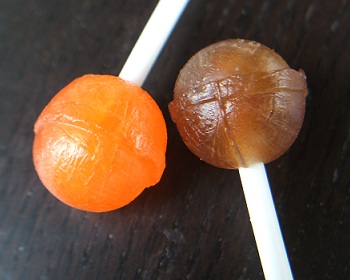
Visualize the poor unaware kid, whose parents bought a super-size lollipop at the amusement park. He will spend the whole day continuously feeding the bacteria in his mouth by licking it.
3. HARD CANDIES
There is an industry that produces candies of all shapes, colors, flavors. In third because they are slightly quicker to pass in the mouth, and harm the enamel for a slight shorter time. 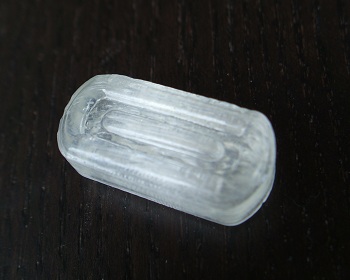
They are an awful thing to eat anyway. Today, cigarette producers have to write on their packages causes cancer and death. I dream a day where candy producers will have to write on their packages causes tooth decay and teeth death.
4. MILK CHOCOLATE
If you heard that chocolate is healthy because it has antioxidants, don’t get fooled. This is true for dark chocolate, the one with more cocoa. 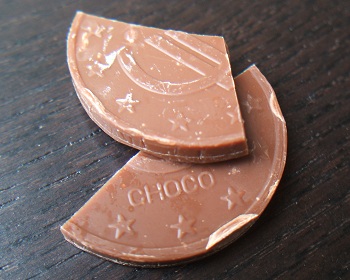
Milk chocolate is preferred by the vast majority of people because it is sweeter (it has more sugar) and creamier (it has milk powder). Cocoa and sugar are added in inverse percentages in chocolate: 75% cocoa means 25% sugar, 65% cocoa means 35% sugar.
The harm that chocolate do to teeth vary depending on many factors, for example a filling of glue-like sugary substance makes it worse. But I rate 4th the simple milk chocolate for an additional reason over the sugar content: the pervasiveness. It melts in the mouth and reaches every hollow space between the teeth.
5. PASTRIES
This is a big category, but I consider here all the sweets that combine two damaging elements for teeth. In fact, beside tons of sugar, they usually have a foundation made with white flour. And does white flour promote tooth decay too? Definitely yes. I will explain it later with white bread. 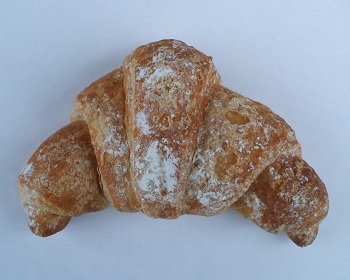
Examples: pies, muffins, cookies, tarts, donuts…and infinite other types.
6. “CEREALS”
Notice the quotation marks.
Only in 6th because they are usually consumed at breakfast and hopefully people brush their teeth after eating them, or however are active and with enough saliva to dilute the sugar in their mouth. 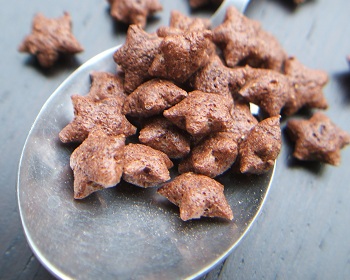
But these things have nothing to do with real cereals. They are non-foods, extra processed and depleted of all the nutrients. They are packed with colorants, preservatives, sugar. In my trips to America and Canada I was horrified to see immense shelves of these at the supermarkets.
Names like “Special something” don’t make them especially good for your health, just make them especially useless in terms of nutrition… and especially dangerous for tooth decay.
7. WHITE BREAD
It’s a common misconception that only the foods that taste sweet contain sugar.
Foods based on refined cereals, like white bread, contain starches. Starches have molecules made of chains of glucose. Glucose is a sugar. 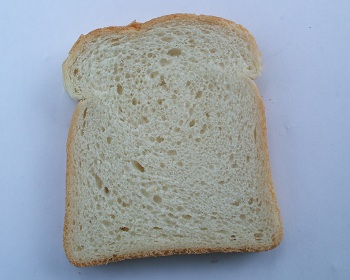
There are many starchy foods (pasta, rice, chips, tortillas) but I consider white bread as the emblem of the refined foods category because it is so common. People consume so much of it daily.
The most dangerous for teeth is the sliced white bread with mushy consistency used for sandwiches. Very unhealthy bread.
8. ICE CREAM
Ice cream is risky because you stay there licking and sucking sugar for minutes, thus -again- feeding the bacteria for awhile. They can be less damaging than the previous foods because of their soft consistency. They flow away easily in the oral tract. 
But some have syrups, nuts, candied sprinkled all over their surface: these increase the detriment for the teeth.
9. SOFT DRINKS
Soft drinks like Cola and Energy Drinks are terrible for health in general, and for the teeth of course. I saw some videos showing how many spoons of sugar a soda can contain: it was shocking to see it explicitly. 
Their “advantage” (to say so, but remember that this is a list of atrocities) over the upper foods is that they are liquids, so the teeth are flooded by a sugary river when you drink and stop.
The troubles happen when you drink repeatedly during the day. Then soda can become a much more determinant factor in the formation of cavities.
For similar reasons: sugary juices and tea
10. SAUCES
Two observations about popular sauces like ketchup, mayonnaise and salad dressings.
First, they are not popularly associated to sweets, but they are sweets. It is just that they also contain so many other strong flavors that the person’s taste is distracted and does not focus on the sweet. 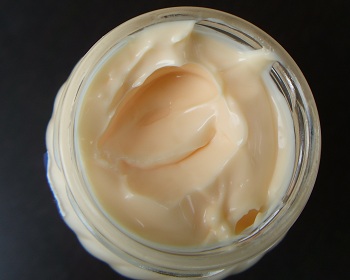
Second, even if sauces are not among the worst tooth decay causes, they become a factor when used in conjunction with bread, chips, tortillas, and other foods that are already harmful by themselves.
I KNOW
This top 10 is not omni-comprehensive.
Many other foods could have been considered: unfortunately there are thousands of convincing candidates produced by the sugar industry. Some foods could rank higher or lower depending on condiments, fillings, preparation methods. There are midway possibilities between these shown, for example white bread coated with chocolate cream.
Natural foods like fruit could have been considered as well. Fruit is wonderful for health but it contains sugar too, and bacteria do not discriminate between processed or natural. They use it anyway.
However, I still think this simple list is very useful to understand the judgment necessary to decide which foods are dangerous for our teeth. Sugar amount, stickiness, exposure time are important factors that determine the birth of tooth decay.
SLEEP AFTER EATING
Another crucial factor.
Not a food itself but a big ally of the foods listed above: sleep. This is a very important point that I don’t see highlighted often enough, or explained too clearly.
Do you know they usually say to brush your teeth after eating? Commonly after breakfast, lunch and dinner? I really feel like recommending you this: pay extra attention to the after dinner brushing. Never forget. And brush your teeth whenever you are about to go to sleep, even if it is a nap in the afternoon.
Sleep is extremely dangerous for the teeth, especially in proximity of a meal. Why is that?
When you sleep saliva diminishes. There is not the flow that you have when you are awake. All the swallowing and the tongue movements are significantly reduced.
If you eat something, do not brush, go to sleep right after, there will be not much saliva protecting you with its buffering function. Sugar will not be diluted but will stay there around your teeth. Bacteria will work silently and effectively, destroying your teeth.
This is how many dental caries happen. A good example is baby bottle tooth decay, a common issue for babies. Mothers leave their children with bottles of sugary liquids like milk (lactose is a sugar), juices and formulas. The babies sleep right after sucking, and it’s done.
For example I usually brush my teeth twice a day, after breakfast and after dinner. I eat less sugar than many people so I can afford not to brush my teeth after lunch. But if some day I don’t work and want to take a nap after lunch, I add the third brushing.
MY STORY
I spent ten years of my life struggling with cavities, approximately from age 10 to age 20.
All my molars and some front teeth now have fillings.
My mother was not aware of the information I discussed so far, and fed me with all sorts of sugary snacks.
I remember going periodically to the dentist to cure my cavities as a teenager. I think I considered normal to have dental caries from time to time. My dentist used to say with not much emphasis that I should have reduced sweets.
In a typical day I had cookies or “cereals” in the milk for breakfast, sugary snacks at school, other sugary snacks after lunch, things like pane e nutella in the mid afternoon. No surprise my teeth were continuously at stake.
Around age 20 I had the nth filling and thought “what the hell? This is not normal and has to finish!”. I simply decided to cut sweets completely. That was a great decision not only for my teeth but for my mental and physical health in general, but I will discuss this in other articles.
Now is about ten years since I ate my last piece of chocolate or cake, and never developed new dental caries in the period. I know it’s “slightly” drastic, but I am used to this kind of extremities about health. Of course I am not saying you have to do the same. What I am saying is that it worked.
It proved clearly that it was not genetics, it was not that I had a weak enamel. It was just that…
Tooth decay is caused by sugar.

